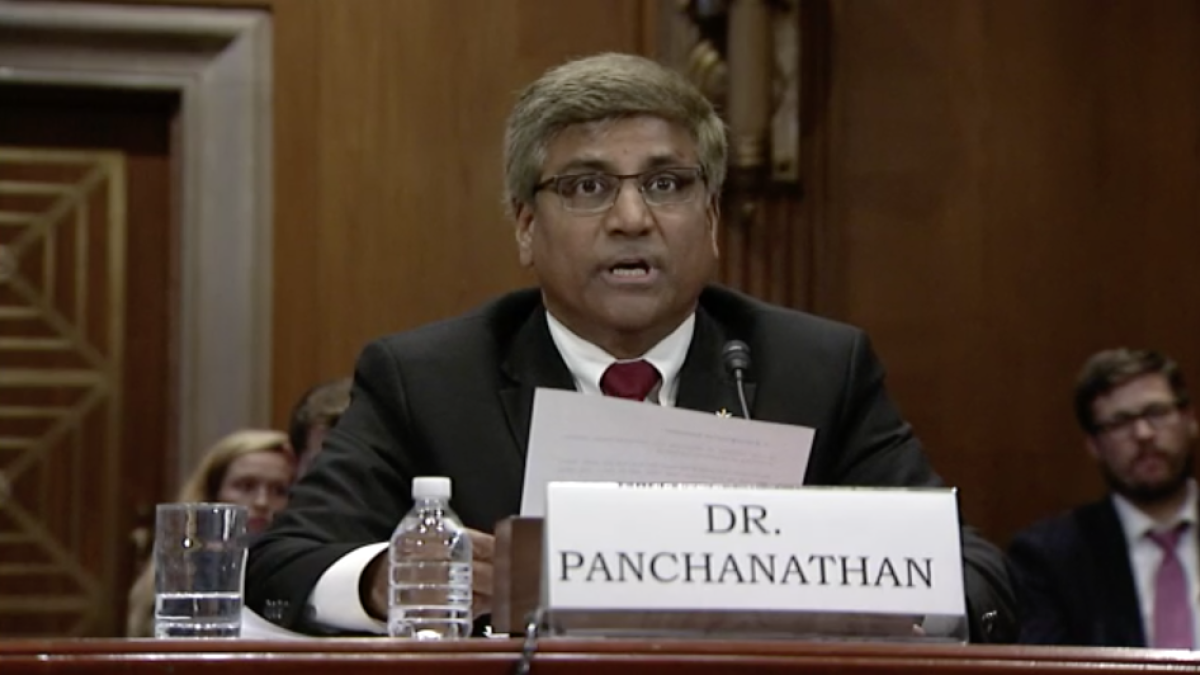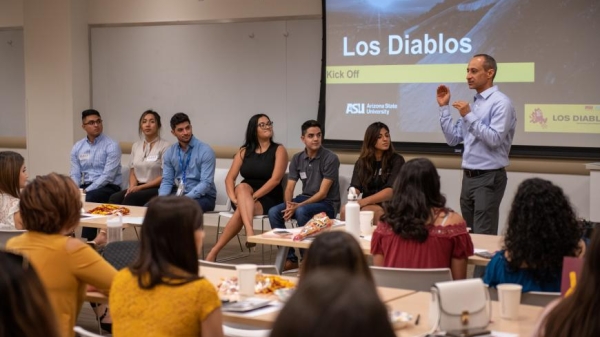Investing in university research strengthens US competitiveness, ASU innovation chief tells Senate

Sethuraman "Panch" Panchanathan, executive vice president and chief research and innovation officer at Arizona State University, testifies Tuesday before the U.S. Senate Subcommittee on Science, Oceans, Fisheries, and Weather in Washington, D.C.
The United States has always been in the race to be the best; only now, the race has more competitors. The U.S. Senate Subcommittee on Science, Oceans, Fisheries, and Weather explored the topic Tuesday, saying that the country’s edge on global competitiveness is challenged daily by countries like China, which have bolstered investments in science and technology.
Sethuraman "Panch" Panchanathan, executive vice president and chief research and innovation officer at Arizona State University, testified before the subcommittee in Washington, D.C., as part of the “Research and Innovation: Ensuring America’s Economic and Strategic Leadership" hearing to discuss the nation’s outlook on research and innovation, and the impact universities have on global competitiveness.
According to the American Association for the Advancement of Science, global research and development has increased by 100% since 2000, with U.S. investments only increasing by 40%.
In order to keep the U.S. ahead of global competitors, Panchanathan believes four key elements are needed: a strong research and development ecosystem, a strong learner ecosystem, a strong partnership ecosystem and a strong economic development ecosystem. He said our nation has entered a new, bold frontier in science and technology and believes it's vital to prepare all citizens for emerging technologies — the fourth industrial revolution.
“Automation is changing the ways we learn, live and work," he said. "Some jobs will be augmented, new roles will be born and some positions may dissipate. Therefore, citizens must become master learners with the capability to adjust and adapt throughout their life."
When asked if people are still looking to the U.S. for opportunities, Panchanathan replied, yes. However, he said we need to be more welcoming of talent around the globe — a sentiment expressed in one of his key points for a stronger learner ecosystem.
“It’s imperative that quality education and training opportunities, upskilling and reskilling of talent are accessible to all, regardless of their socioeconomic background, geographic location or where they are in their career and educational trajectory,” he said.
More University news

ASU Alumni Association to honor 3 outstanding alumni leaders during Homecoming
The Arizona State University Alumni Association will proudly recognize three innovative alumni leaders during the Homecoming…

From service to civilian success
Transitioning from military to civilian life is a unique experience that can be challenging for veterans. Some struggle to find…

ASU as the 'New American University' sets the model for higher education reform
Arizona State University’s charter is only 46 words long, but it’s a bold promise that’s a model for the reinvention of higher…